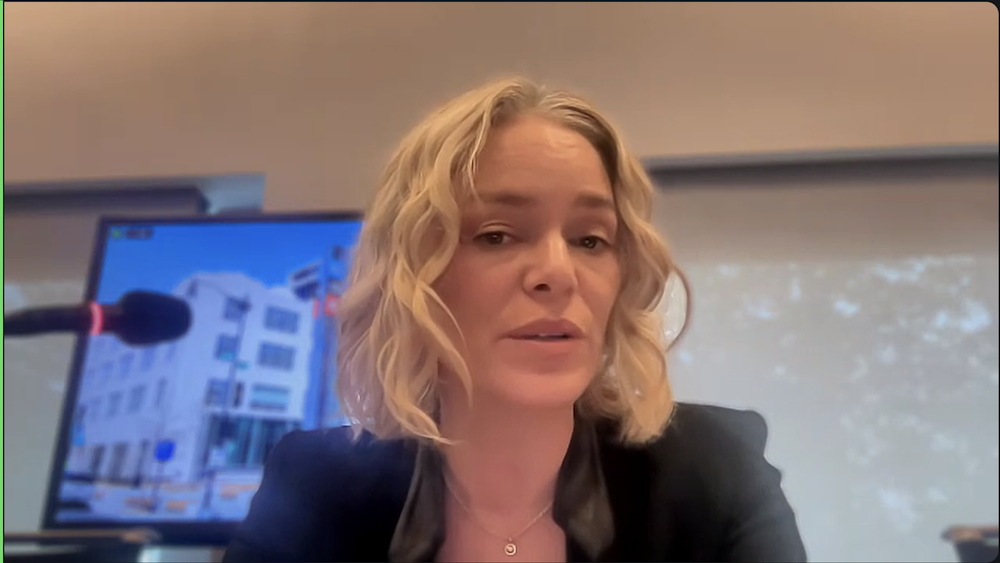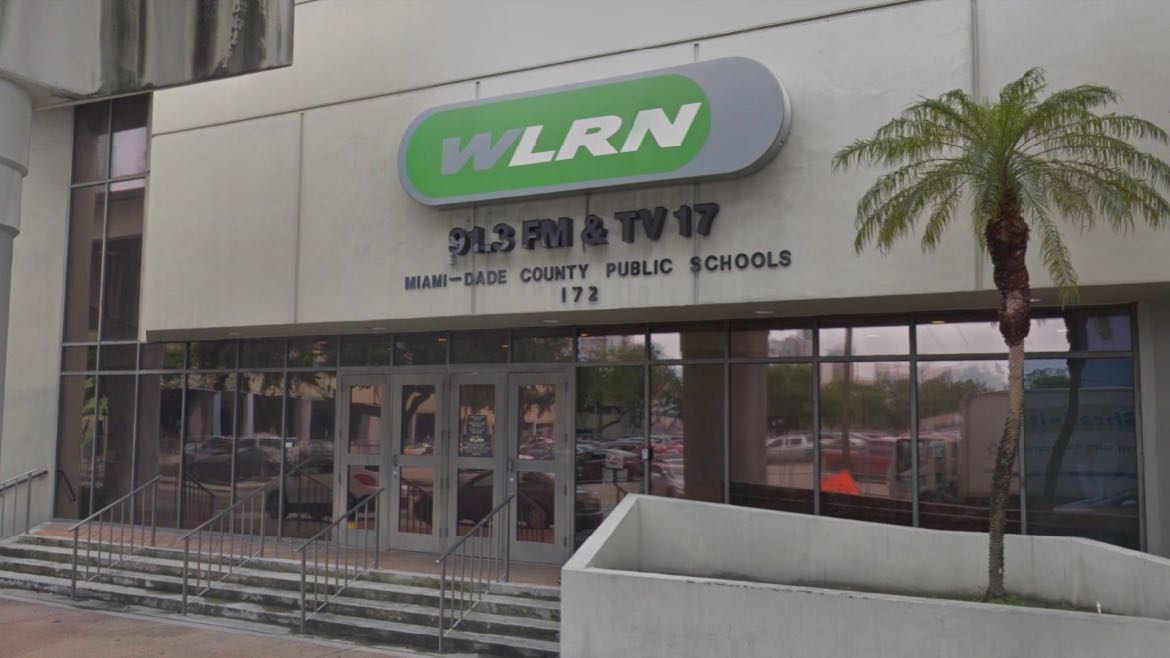NPR CEO warns of ‘hostile environment’ ahead for journalism, scrutiny of pubmedia

Zoom screenshot
NPR CEO Katherine Maher speaks during the NPR board meeting Friday.
Speaking Friday during a meeting of NPR’s board, CEO Katherine Maher said Republicans’ “dramatic sweep” of the election means “we are likely to face scrutiny, investigation and renewed pushes to eliminate federal funding for public media.”
“We are likely to face a difficult and potentially hostile environment for journalists and journalism,” she said. “The president-elect has made comments to this effect, threatening the press corps and invoking the potential of utilizing investigatory and regulatory power against media organizations.”
Public media has already been the subject of renewed criticism over the past year. Senator Ted Cruz (R-Texas) has questioned CPB about its diversity policy, board meetings and funding for NPR. A critical essay by former NPR editor Uri Berliner led to heightened scrutiny of NPR and public media funding, culminating in a Republican-led House hearing about perceived NPR bias.
In his first term, Trump unsuccessfully proposed zeroing out CPB’s budget. He has continued to be vocal about defunding NPR, calling it a “liberal disinformation machine.”
Earlier this week, Tesla CEO Elon Musk, who is expected to co-chair a proposed Department of Government Efficiency, posted a 10-second video clip of Maher on X, his platform formerly known as Twitter, in which she said, “I think our reverence for the truth might have become a bit of a distraction that is preventing us from finding consensus and getting important things done.” The clip was taken from a 2021 TED Talk given by Maher before she became NPR’s CEO.
Musk wrote, “Should your tax dollars really be paying for an organization run by people who think the truth is a ‘distraction’?”
On Friday, the conservative National Review placed CPB at the top of its list of suggested funding cuts for the new administration. The Heritage Foundation’s Project 2025 also calls for defunding.
Despite the headwinds, Maher cautioned “not to speculate irresponsibly” and to face challenges to funding “directly.”
“We should be well prepared at every moment to talk with enthusiasm about the purpose and value of public media,” she said. “… We should be prepared to defend the work of our journalists, whose work is held up to the highest of ethical standards, constructed to withstand the hardest of gazes. And we should constantly be involved in a rigorous conversation about the needs of the American people for news: Are we serving people fairly? Are we serving them well? And can we serve them better?”
Maher also made a case for renewed collaboration between NPR and stations. “As a system, it is time for us to align,” she said.
“We have to find ways to replicate the seamless hybrid success of local and national we’ve had on our radio for so many years to other means of delivering reporting, culture and context,” she said. “We need to understand how to compromise and make tactical business and operational decisions that will allow us to build strength skills and long-term support for public media across the nation.”
NPR’s investments in regional newsrooms have been “a significant step towards this deepening collaboration, cooperation, talent development,” she said.
Jennifer Ferro, NPR board chair and president of KCRW in Santa Monica, Calif., said the board has been discussing the “many unknowns” in the months ahead.
“I know some of you are looking for what to say to your listeners, your donors and your board members,” she said. “I’m going to ask, let’s be thoughtful and careful about that until we have some more guidance.”
She said that Maher and Marta McLellan Ross, VP of government and external affairs, will meet with station leaders next week to discuss the outcomes of the election and the “communication and outreach work that each of us can do.”
“It’s important that we not be reactive,” Ferro added. “But until then, we can proudly say that we inform, we illuminate and we highlight the stories and issues that are front and center on our streets and in our country.”








For years I know we’ve said in our radio pledge drives that the CSG from CPB was only 6% of our annual budget. And supposedly that was common across a lot of the radio network.
Is that still true?
Also, does anyone know what the average is for TV stations?
Google sources say “According to recent data, local public radio stations typically receive around 10% of their funding from CPB, with over 70% of CPB funding going directly to local stations, representing a significant portion of their overall revenue, especially for rural stations where other funding sources may be harder to access. ” I think smaller stations are often 20-50% CPB funding. About 35 states provide public media funding too.
Maher should have been shown the door after her twitter history came to light (really, she should have never been hired). Her presence will only help sink the entire system.
Katherine Maher should have been shown the door as soon as her twitter history came to light (really, a partisan like her should have never been hired). Her presence will only sink the entire public media system.
NPR and PBS can survive without CPB, but for rural stations and Native American stations across the country it’s a whole different story, especially for stations who are sole service stations for their communities. CPB CSG grants make up a considerably larger portion of the funding that keeps these stations on air, and it would be devastating to those stations if CPB were to be defunded. Many exist not to spout political views, but just to keep their listeners informed about local and state issues not covered by the larger urban public radio stations.
Shut down NPR, sell off the licenses!!! They are the spokesman for Democrats and large sums of money can be raised to pay down Bidens new government debts.